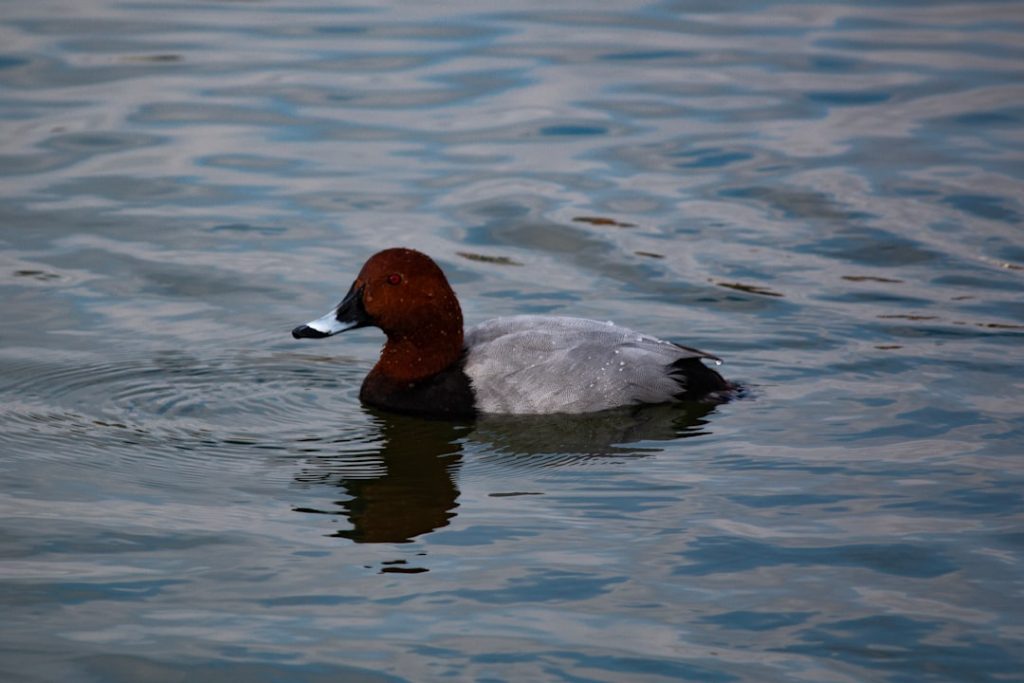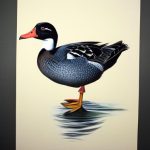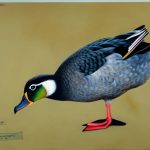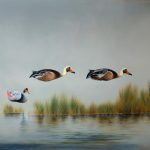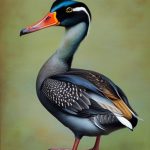Black duck breeds are a popular choice for many duck enthusiasts due to their striking appearance and unique characteristics. These breeds are known for their beautiful black plumage, which sets them apart from other duck breeds. Black ducks are also highly valued for their versatility, as they can be raised for meat, eggs, or as pets. In addition to their practical uses, black duck breeds are also admired for their friendly and sociable nature, making them a great addition to any backyard flock. Whether you are a seasoned duck owner or a beginner looking to add some diversity to your flock, black duck breeds are definitely worth considering.
Table of Contents
Key Takeaways
- Black duck breeds are a popular choice for poultry enthusiasts due to their unique characteristics and hardy nature.
- Black duck breeds are known for their glossy black feathers, strong build, and friendly disposition.
- Some popular black duck breeds include the Cayuga, Swedish Black, and Black East Indie.
- The history and origins of black duck breeds can be traced back to various parts of the world, including North America and Europe.
- Proper care and maintenance of black duck breeds include providing a balanced diet, clean living conditions, and regular health check-ups.
Characteristics of Black Duck Breeds
Black duck breeds are known for their distinctive black plumage, which can range from a glossy, iridescent black to a more matte, velvety black. This striking coloration is often accompanied by bright orange or yellow bills and legs, creating a visually stunning contrast. In addition to their appearance, black duck breeds are also known for their hardy and adaptable nature. They are well-suited to a variety of climates and can thrive in both free-range and confined settings. Black ducks are also known for their friendly and sociable disposition, making them a great choice for those looking to raise ducks as pets. They are generally easy to handle and can be quite affectionate towards their human caretakers.
In terms of size, black duck breeds can vary widely depending on the specific breed. Some black duck breeds, such as the Cayuga and the East Indies, are medium-sized ducks with a compact and muscular build. Others, like the Black Swedish and the Orpington, are larger breeds that can reach impressive sizes. Regardless of their size, black duck breeds are known for their excellent foraging abilities and are often valued for their ability to help control pests in the garden or on the farm.
Popular Black Duck Breeds
There are several popular black duck breeds that are favored by duck enthusiasts for their unique characteristics and practical uses. One of the most well-known black duck breeds is the Cayuga, which is prized for its iridescent greenish-black plumage and excellent egg-laying abilities. The Cayuga is a medium-sized duck with a calm and friendly temperament, making it a popular choice for both backyard flocks and small farms.
Another popular black duck breed is the East Indies, which is known for its striking black plumage and distinctive beetle-green sheen. This breed is also valued for its small size and excellent foraging abilities, making it a great choice for those looking to raise ducks in a more confined space.
The Black Swedish is another popular black duck breed that is prized for its large size and gentle disposition. This breed is known for its solid black plumage and bright orange bill and legs, creating a visually striking appearance. The Black Swedish is also valued for its excellent meat production and is often raised for its flavorful and tender meat.
The Orpington is yet another popular black duck breed that is favored for its large size and gentle nature. This breed is known for its glossy black plumage and friendly disposition, making it a great choice for those looking to raise ducks as pets. The Orpington is also valued for its excellent egg-laying abilities, making it a practical choice for those looking to raise ducks for eggs.
History and Origins of Black Duck Breeds
The history of black duck breeds can be traced back to several different regions around the world. The Cayuga duck, for example, is believed to have originated in the United States, specifically in the Finger Lakes region of New York. This breed was developed by local farmers in the mid-19th century and was named after Cayuga Lake, which is located in the heart of the Finger Lakes region. The Cayuga duck was initially prized for its excellent meat production and was later recognized for its exceptional egg-laying abilities.
The East Indies duck has a more mysterious origin, with some historians speculating that it may have originated in Asia before being brought to Europe and eventually to the United States. This breed was first recognized in the mid-19th century and was prized for its unique appearance and practical uses.
The Black Swedish duck has its origins in Sweden, where it was developed as a dual-purpose breed valued for both meat and egg production. This breed was later brought to the United States, where it gained popularity among small farmers and backyard flock owners.
The Orpington duck has its origins in England, where it was developed by William Cook in the late 19th century. Cook sought to create a dual-purpose breed that was both productive and visually appealing, leading to the development of the Orpington duck. This breed was later brought to the United States, where it gained popularity among small farmers and backyard flock owners.
Care and Maintenance of Black Duck Breeds
Caring for black duck breeds requires attention to their specific needs in terms of housing, diet, and general maintenance. When it comes to housing, black ducks require a secure and predator-proof enclosure that provides protection from the elements while also allowing them plenty of space to move around. This can be achieved through a well-constructed coop or shelter that provides adequate ventilation and protection from drafts.
In terms of diet, black ducks require a balanced diet that includes a high-quality commercial feed supplemented with fresh fruits and vegetables. They also require access to clean water at all times, as well as opportunities for regular foraging to meet their natural instinct to search for food.
General maintenance of black duck breeds includes regular grooming to keep their feathers clean and free from parasites, as well as routine health checks to monitor their overall well-being. It’s also important to provide them with opportunities for exercise and mental stimulation to keep them happy and healthy.
Breeding and Raising Black Duck Breeds
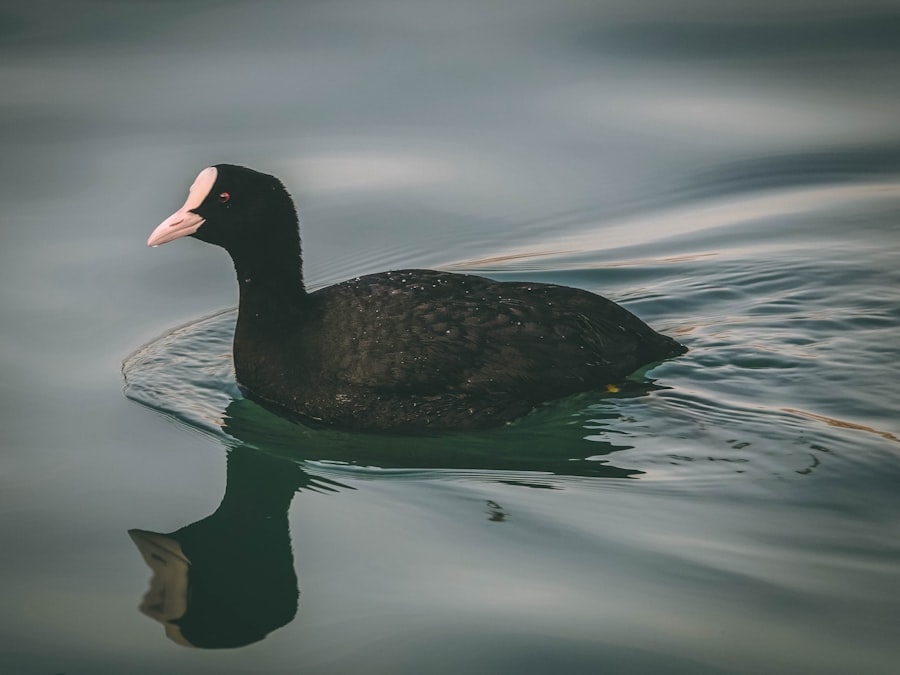
Breeding and raising black duck breeds can be a rewarding experience for those looking to expand their flock or start a breeding program. When it comes to breeding, it’s important to select healthy and genetically diverse breeding stock to ensure the production of strong and vigorous offspring. This can be achieved through careful selection of breeding pairs based on their physical characteristics, temperament, and overall health.
Once breeding pairs have been selected, it’s important to provide them with a suitable nesting area that offers privacy and protection from disturbances. This can be achieved through the provision of nesting boxes or secluded areas within their enclosure where they can lay and incubate their eggs in peace.
Raising black ducklings requires attention to their specific needs in terms of warmth, nutrition, and socialization. Ducklings should be provided with a warm and draft-free brooder area equipped with heat lamps or heating pads to maintain an optimal temperature. They should also be fed a high-quality starter feed formulated specifically for ducklings to support their rapid growth and development.
As they grow, ducklings should be gradually introduced to their outdoor environment under supervision to ensure their safety and well-being. They should also be provided with opportunities for socialization with other ducks to help them develop healthy social bonds within the flock.
Conclusion and Considerations for Owning Black Duck Breeds
In conclusion, black duck breeds are a popular choice for many duck enthusiasts due to their striking appearance, unique characteristics, and practical uses. Whether you are looking to raise ducks for meat, eggs, or as pets, there is a black duck breed that is sure to meet your needs. However, it’s important to consider the specific care requirements of black duck breeds before bringing them into your flock.
From providing them with a suitable housing environment to meeting their dietary needs and ensuring proper grooming and health care, owning black duck breeds requires dedication and attention to detail. Additionally, breeding and raising black duck breeds can be a rewarding experience but requires careful planning and consideration of their specific needs at each stage of development.
Overall, black duck breeds are a valuable addition to any flock and can provide years of enjoyment and practical benefits when cared for properly. Whether you are an experienced duck owner or new to raising ducks, black duck breeds are definitely worth considering for their unique characteristics and versatile nature.
If you’re interested in learning more about duck breeds, you might also want to check out this informative article on PoultryWizard about the benefits of raising geese and whether they can eat chicken feed. It’s a great resource for anyone looking to expand their knowledge of poultry farming. Learn more here.
FAQs
What are some common black duck breeds?
Some common black duck breeds include the Cayuga, Black Swedish, and Black East Indie.
What are the characteristics of black duck breeds?
Black duck breeds typically have dark feathers, ranging from a deep black to a lustrous greenish-black color. They may also have orange or dark beaks and legs.
What are the uses of black duck breeds?
Black duck breeds are often raised for their meat, eggs, and sometimes as ornamental birds. They are also known for their foraging abilities and pest control in agricultural settings.
How do you care for black duck breeds?
Caring for black duck breeds involves providing them with a suitable living environment, access to water for swimming and foraging, a balanced diet, and protection from predators. Regular health checks and proper hygiene are also important for their well-being.
Meet Walter, the feathered-friend fanatic of Florida! Nestled in the sunshine state, Walter struts through life with his feathered companions, clucking his way to happiness. With a coop that’s fancier than a five-star hotel, he’s the Don Juan of the chicken world. When he’s not teaching his hens to do the cha-cha, you’ll find him in a heated debate with his prized rooster, Sir Clucks-a-Lot. Walter’s poultry passion is no yolk; he’s the sunny-side-up guy you never knew you needed in your flock of friends!

